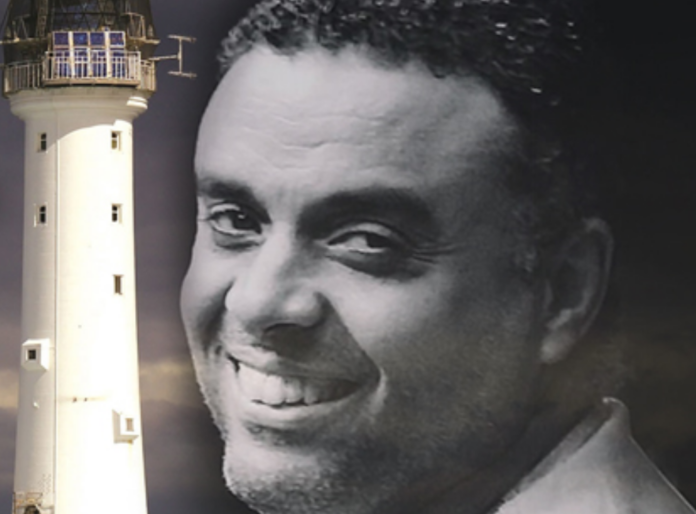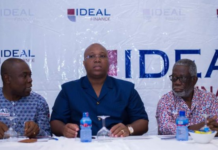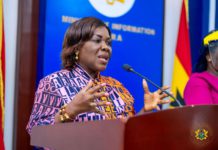
The Labour Division of the High Court in Accra has set November 25 this year to give its ruling on whether it will allow Lighthouse Chapel International to amend its statement of defence in a suit filed by six former pastors against the Church.
The court presided over by Justice Ananda Juliana Aikins, fixed the date after counsel for LCI, Mr Vincent Kizito Beyuo who was recently appointed as counsel for the Church, and counsel for the former pastors, Mr Kofi Bentil had closed their arguments regarding the application filed by the Church.
The six pastors, Bishop Larry Odonkor, Bishop Oko Mensah, Rev. Edward Laryea, Pastor Seth Duncan, Pastor Edem Amankwah and Pastor Faith Makafui Fiakojo, filed their separate suits on April 19 this year at the court presided over by Frank Aboadwe Rockson.
The pastors, among other things, have sued the church over Social Security and National Insurance Trust (SSNIT) contributions salary arrears, and damages for breach of contract
Justice Rockson is currently on leave and as a result, Justice Aikins has taken over the case as the interim judge.
Application
Moving the motion for amendment before the interim judge, Justice Aikins, Mr Beyuo argued that it had become necessary for the Church to amend its statement of Defence and counterclaims in order to aid the court to effectively determine all the issues in dispute between them in the case.
The application, if granted, Mr Beyuo said, will neither delay the determination of the case nor prejudice the plaintiff.
He further notified that the court that annexed to the application was a proposed statement of Defence and counterclaim which set out the amendment being sought by the Church.
Proposed Amendments
The Proposed Amended Statements of Defence which among other things contain the following;
- The SSNIT report on the complaints, which was released on 20th August 2021. The Report exonerated the church of allegations made by the plaintiffs on non-payment of SSNIT contributions.
The SSNIT Report also stated that there was no employer-employee relationship between Lighthouse Chapel International and the plaintiffs for the periods in contention for non-payment of SSNIT contributions.
Again, the church contends that the pastors did not have the capacity to sue the church for the alleged non-payment of SSNIT contributions.
It is the case of the church that according to the National Pensions Act, 2008 (Act 766), such proceedings can only be instituted by the Attorney-General or an officer of SSNIT appointed by the Attorney-General
The LCI also denied any liability to the plaintiffs and argued that the church will be vindicated by the court like it was exonerated by SSNIT. The church said the plaintiffs’ claims were based on alleged breach of contract and therefore any claims concerning matters that allegedly occurred before 2015 were barred by the Limitations Act 1972 ( N.R.C.D. 54 ) which provides that in cases of an alleged breach of contract the action must be brought within six years after the alleged breach occurred. Their claims of the pastors date back to 2001.
Police report
Another issue that has been featured in the Church’s proposed statement of defence is a Police Report on a criminal case against Oko Mensah for allegedly stealing a car belonging to the LCI. Oko Mensah alleged in his Statement of Claim that while he was in the employment of the church, LCI denied him basic logistics such as a car and he had consequently spent the equivalent of GHC 93,000 of his own money to rent cars over a 15 month period.
ALSO READ:
He also claimed that sum from the church. The church, in its proposed statement of Defence, denied this and stated that Oko Mensah had rather refused to return the official car assigned to him when he resigned and that the matter had been reported to the police.
The police investigated the matter and impounded the vehicle and have charged Oko Mensah for stealing in the Circuit Court.
Opposition
Counsel for the Pastors, Mr Bentil, who opposed the application for amendment urged the court to dismiss the application.
He grounded his argument on Order 21 rule 14 of the High Court Civil Procedure Rules, Constitutional Instrument (C.I 47) which states that, “Any document to be used in conjunction with an affidavit shall be exhibited and not merely annexed or attached to the affidavit”.
Counsel said the Church failed to exhibit its documents and hence, its application was in breach of the court’s rules.
Counsel further argued that they had not been properly notified and that the application did not constitute proper notice.
Being properly noticed, according to counsel, would afford his clients the opportunity to know exactly what to respond to in respect to the Church’s application.
Response
In his response, Counsel for LCI said the defendant had specified in the notice of motion what needed to be done and the Church incorporated by reference the Proposed Amended Statement of Defence and that the rules permit for Proposed Amended Statement of Defence to be attached to the application.
Counsel further argued that counsel for plaintiffs had not demonstrated any prejudice the plaintiffs will suffer by the defendant not exhibiting the Proposed Amended Statement of Defence.






